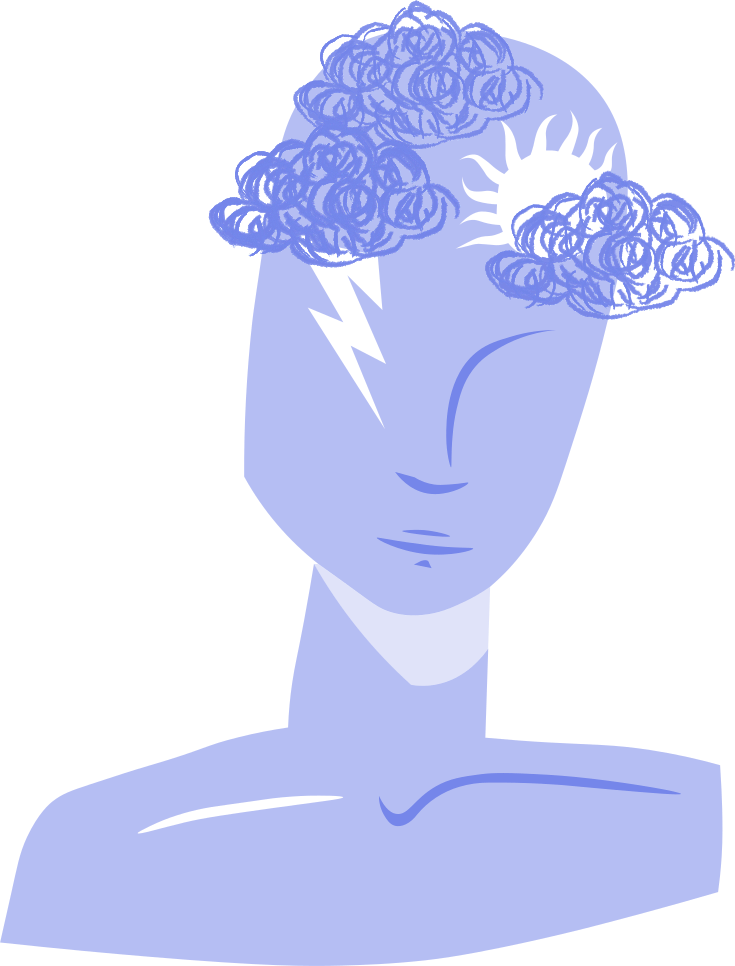
Mental Health
{Take care of yourself and your friends}
Put your brand in front of thousands monthly and support the growth of harm reduction.
After
Coming back down to normal life can be off putting. Each substance has a different type of come-down and you can check out what these often are in our drug pages. These are diverse effects and can vary person to person. In the immediate aftermath of the event, what can you do to help your mental health?
These comedown effects are perhaps most pronounced with MDMA and psychedelics. Though many guides are available for supplements that may help with comedowns, it's important to remember two key things: sleep and eat well. No easy task after a night out.
This is really key for two reasons:
- Common feelings of anxiety, paranoia and even hallucinations are also symptoms of sleep deprivation and can exacerbate any comedown from drugs.
- If you've been on a night out, you've probably not eaten for over 12 hours - you'll need a top up!
What else can you do to help you through the next week or so? Well - keep up social contact if you feel up to it. Hang out with those you've been out with. Get outside in the fresh air. Make sure you return to your routine as much as you can. And, apparently dogs can help too!
Comedowns
Comedowns, or hangovers, are just how you feel in the days following taking drugs or alcohol. You can think about comedowns in three stages. The first is the reaction your body has after an exhausting -- both mentally and physically - night or day beforehand. This is normal, and should be fine once you've rested, eaten and slept.
The second is the one that comes around because of the direct impact on your brain. Earlier we described how neurotransmitters are released from one neuron onto another. The feelings you feel immediately afterward may just be a result of this action.
However, the last is the impact this may have long term. Over time, these temporary changes can build up. If you take ecstasy on a regular basis, you may be releasing and depleting your serotonin before it has a chance to fully replenish itself. This means you will be operating on lower-than-normal serotonin levels most of the time, and this can lead to depression or worsen depressive symptoms.
Sometimes this long term effect may manifest where there is no or little immediate comedown. Cannabis may only have mild or short term comedowns, but heavy and consistent use over time may exacerbate underlying mental health problems, especially if you're under 182.
It can be quite difficult to tease out each element of the comedown and how your use is impacting you.
Can I avoid it? What helps them?
Sadly there is not an easy way to get around comedowns. The best way to avoid comedowns and long term side effects is to spread out and reduce use.
There are online guides, such as those on TripSafe and Rollsafe, that provide supplement lists. These could help reduce the negative impacts of some drugs. The theory behind these is to offset a negative part of the drug, such as taking 5-HT (aka Serotonin) to replace it after it's depletion. There is not anything more than anecdotal evidence for these though!
Between doses
You've had a fantastic experience and the first thing you want to do is to dive back in. Wait! You can do yourself serious damage by using drugs regularly. Give yourself time to recover.
We've got some suggestions to help bring you back up to tip top shape:
- Share - some experiences can bring up thoughts that might challenge you. Feel free to discuss these with those you trust, especially if they have shared that experience or similar with you. Reminiscing about a night out can also be good!
- Recover - Processing the experience can take time. Mindfulness exercises and yoga can help ground you and provide resilience, helping your mental health in life and onwards.
- Exercise - don't forget the physical. Get moving and get outside!
- Eat well - making sure you're eating healthily can help you recover and to improve your own mental health.
Consider your 'normal' - what do you normally do to look after your emotional wellbeing? There are many tools and apps around that can help you think about this such as the Wheel of Wellbeing.
References
1 Palamar, J. J., Acosta, P., & Cleland, C. M. (2019). Planned and Unplanned Drug Use during a Night out at an Electronic Dance Music Party. Substance use & misuse, 54(6), 885--893. <https://doi.org/10.1080/10826084.2018.1529186>
2 Mustonen, A., Niemelä, S., Nordström, T., Murray, G., Mäki, P., Jääskeläinen, E., & Miettunen, J. (2018). Adolescent cannabis use, baseline prodromal symptoms and the risk of psychosis. The British Journal of Psychiatry, 212(4), 227-233. doi:10.1192/bjp.2017.52
3 Sessa B, Higbed L and Nutt D (2019) A Review of 3,4-methylenedioxymethamphetamine (MDMA)-Assisted Psychotherapy. Front. Psychiatry 10:138. doi: 10.3389/fpsyt.2019.00138
Put your brand in front of thousands monthly and support the growth of harm reduction.
